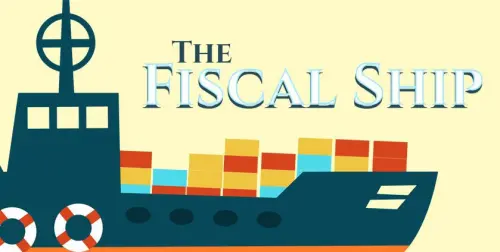The big tax cut that President Trump signed into law at the end of 2017 will add substantially to the national debt. Someday – maybe not soon, but someday – Congress will have to do something about that. The federal budget is on an unsustainable trajectory. Our current tax code won’t produce enough revenue to cover the health and retirement tab for the steadily aging U.S. population.
You don’t have to wait for Congress. Try your own hand at this challenge by playing The Fiscal Ship, a joint venture of the Hutchins Center on Fiscal and Monetary Policy at Brookings and the Woodrow Wilson International Center for Scholars. The goal of the game is simple: Restrain the projected increases in the federal debt while staying true to things you care about. Maybe you want to reduce inequality or shrink the size of the government. Can you pick policies that bring down the debt and meet those goals?
We recently updated the Fiscal Ship by adding new policies that let you tweak or repeal parts of the 2017 tax bill. Here are a few examples:
The recently enacted individual income tax cuts are set to expire in 2025. What if we kept them indefinitely? One camp says that’s only fair. After all, the corporate tax cuts don’t expire. The other says that with an already rising federal debt, we can’t afford that.
The new law reduces the top corporate tax rate to 21 percent. What if we repealed the corporate tax cuts and returned the top rate to 35 percent? One side says this would be devastating to prospects for economic growth, discouraging corporations from investing in the U.S. The other says the tax cut was too generous and isn’t likely to produce all the promised benefits to the economy and workers. But how far would it go towards stabilizing the federal debt over the next 25 years?
The game has many other policies from which to choose, like curbing Medicare benefits for upper-income Americans, raising the Social Security eligibility age, enacting a carbon tax or a soda tax, expanding federal spending on infrastructure or bolstering the defense budget.
Budget decisions are about more than fiscal sustainability. They shape the country in which we live. To win the game, you need to find a combination of tax and spending policies that match your values and priorities AND that also set the budget on a sustainable course. It’s not easy, but if you’re willing to make some tough choices, you can do it. Tens of thousands of Fiscal Ship players have done so. For more on the game, see www.fiscalship.org.
The Brookings Institution is committed to quality, independence, and impact.
We are supported by a diverse array of funders. In line with our values and policies, each Brookings publication represents the sole views of its author(s).






Commentary
Updates to Fiscal Ship budget game let you keep or repeal parts of the 2017 tax bill
January 30, 2018